Don't wanna be here? Send us removal request.
Text
I AM a KNIGHT.
by: Jesse Escalante May 5, 2024
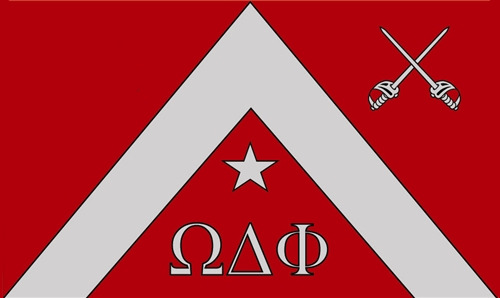
Paving the Way
Before speaking about Omega Delta Phi, one must speak highly about those that paved the way for Omega Delta Phi to become a multi-Greek fraternity in the first place -- the divine nine. The divine nine is a group of predominantly and historically black fraternities that include: Alpha Phi Alpha, Kappa Alpha Psi, Omega Psi Phi, Alpha Kappa Alpha, Delta Sigma Theta, Phi Beta Sigma, Zeta Phi Beta, Sigma Gamma Rho, and Iota Phi Theta. These organizations were founded between 1906 and 1963, at a time when racial segregation and discrimination were pervasive in the United States. These communities first formed as a way to create a sense of community in a place were they were they sometimes were not seen. "Black students, whether studying at historically Black colleges and universities (HBCUs) or predominantly white institutions, came together to create these organizations, forging familial ties to one another and outreach within the larger Black community. Those kinships and ties endure to this day. BGLOs formed at a time when Greek life at predominantly white institutions excluded Black students (NMAAHC)." Although these sororities and fraternities were build for their sense of community and belonging, they still served the community in a various of ways and were always held at a great academic standard. It take a great deal of requirement to from part of any type of Greek life. The establishment of the Divine Nine paved the way for the rest of multi Greek life in several ways:
youtube
Establishment of a Supportive Network: The founding of the Divine Nine provided a supportive network for Black college students who faced discrimination on predominantly white campuses. These organizations offered a sense of belonging, brotherhood/sisterhood, and solidarity among their members.
Promotion of Leadership and Scholarship: The Divine Nine emphasized leadership development, academic excellence, and community service among its members. By promoting these values, the organizations contributed to the personal and professional growth of Black college students and helped prepare them for success in their academic and professional endeavors.
Advocacy for Civil Rights: Many members of the Divine Nine were actively involved in the civil rights movement, advocating for racial equality and social justice.
Expansion of Multi Greek Life: The success and influence of the Divine Nine inspired the establishment of other multi Greek organizations, both within and outside the Black community. These organizations were often founded on similar principles of brotherhood/sisterhood, service, and leadership, and they sought to provide a supportive community for their members.
Diversity and Inclusion: The Divine Nine demonstrated the importance of diversity and inclusion within the Greek community. By welcoming members from diverse backgrounds and experiences, these organizations enriched the overall Greek experience and helped foster a more inclusive environment on college campuses.
Overall, the Divine Nine's legacy extends beyond its individual member organizations, influencing a landscape of multi Greek life and contributing to the development of a more diverse, inclusive, and socially conscious Greek community. Over time, multi Greek fraternities became a prominent feature of college life in the United States, with thousands of chapters established on campuses across the country. Today, these organizations continue to play a significant role in the lives of many college students, providing them with opportunities for personal growth, leadership development, and community service.
The History of Omega Delta Phi
Omega Delta Phi is a multicultural fraternity that was founded on November 25, 1987, at Texas Tech University in Lubbock, Texas. The organization was established by seven men: Silas Garcia, Francisco Lugo, Juan Garcia, William Macias, Jesus Apodaca, Rodolfo Quinones, and Gabriel Rodriguez. These founders wanted to create a fraternity that celebrated diversity and provided a supportive environment for Latino students on campus.
The founding of Omega Delta Phi was a response to no representation and support for Latino students within the existing Greek system at Texas Tech University. The founders wanted a fraternity that would promote leadership, academic excellence, cultural awareness, and community service among its members while also fostering a strong sense of brotherhood. Their mission stands true today nationwide: "Since its beginning in 1987, Omega Delta Phi has been an organization perpetually dedicated to the idea of constant growth and improvement. As such, we face the new challenges of tomorrow with a growing sense of optimism and newfound awareness that “good” will not be good enough. We must work to form an organization which not only challenges the traditional perception of fraternities, but also one with deals with the issues of culture and race for a completely new perspective (Omega Delta Phi)."
From the beginning, Omega Delta Phi focused on recruiting members from diverse backgrounds, including Latino, Asian, African American, and Caucasian students. The fraternity adopted the saying "One Culture, Any Race" to reflect its commitment to multiculturalism and inclusivity.
Since its founding, Omega Delta Phi has rapidly grown and established chapters at colleges and universities across the United States. Omega Delta Phi has a national board of directors and operates under the principles of leadership, integrity, unity, and multiculturalism. The fraternity sponsors various programs and initiatives aimed at promoting academic success, leadership development, and community service among its members. A national conference is held every year where many Universities nationwide join:
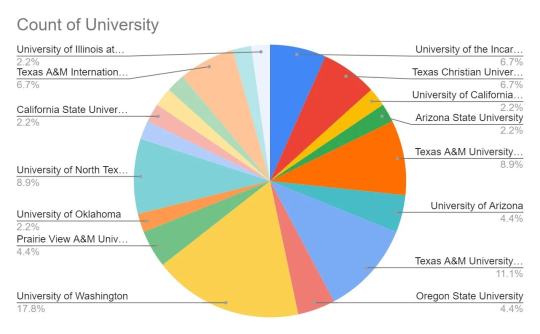
Over the years, Omega Delta Phi has continued to uphold its commitment to diversity, inclusivity, and social responsibility. The fraternity remains dedicated to supporting its members and making a positive impact on college campuses and in the community.
Omega Delta Phi at A&M
Omega Delta Phi has a notable history at Texas A&M University. The fraternity first arrived at Texas A&M University in the early 1990s, when a group of students wanted to bring Omega Delta Phi to the campus. These students were inspired by the fraternity's mission of promoting multiculturalism, leadership, and brotherhood from the Texas Tech Campus. After a period of organization and recruitment, Omega Delta Phi officially established its chapter at Texas A&M University.
Since its establishment at TAMU, Omega Delta Phi has been involved in various campus activities, including community service projects, leadership development programs, and cultural events. The fraternity has worked to promote diversity and inclusion on campus while also providing support and resources to its members. TAMU has a multicultural Greek council that its purpose is held by all the members of Omega Delta Phi: "The purpose of the Multicultural Greek Council at Texas A&M University shall be: to create and maintain high standards in the life of fraternities and sororities by addressing, coordinating and developing strategic action plans; to unify organizations, promote higher education, provide community services, enhance leadership; and serve as a liaison between the Multicultural Greek Council, the university student body and administration thereby improving the campus climate (MGC TAMU)." A picture of the MGC council can be seen below:
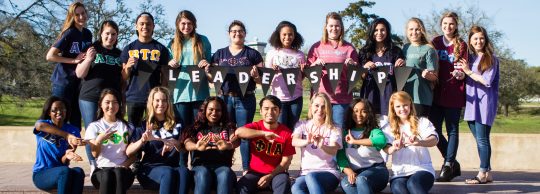
Therefore, Omega Delta Phi has played an active role in the Greek community at Texas A&M University, participating in Greek Week, philanthropic events, and other interfraternity activities. The fraternity has also collaborated with other student organizations and campus departments to organize events and initiatives aimed at promoting unity and understanding among different cultural groups.
Throughout its history at Texas A&M University, Omega Delta Phi has remained committed to its core values of leadership, integrity, unity, and multiculturalism. The fraternity continues to thrive on campus, providing a supportive and inclusive community for its members while also making positive contributions to the broader TAMU community.
Fraternity and Community
Although Fraternities are about the brotherhood and community one builds, it all comes down to our philanthropy. One of the significant causes that my fraternity supports is the Wounded Warrior Project, a non-profit organization dedicated to providing assistance to wounded veterans and their families: "Wounded Warrior Project (WWP) began in 2003 as a small, grassroots effort providing simple care and comfort items to the hospital bedsides of the first wounded service members returning home from the conflicts in Iraq and Afghanistan. As their post-service needs evolved, so have our programs and services. Today, through our direct programs in mental health, career counseling, and long-term rehabilitative care, along with our advocacy efforts, we improve the lives of millions of warriors and their families (WWP)." The Wounded Warrior Project aims to honor and empower wounded veterans by providing a range of programs and services focused on mental and physical health, economic empowerment, and community engagement. These programs include mental health counseling, physical rehabilitation, job training and placement, and peer support groups. Through fundraising events, volunteer activities, and awareness campaigns, the fraternity raises funds and awareness for the Wounded Warrior Project's mission. By supporting the Wounded Warrior Project, Omega Delta Phi fraternity embodies its core values of leadership, integrity, and service. The fraternity's dedication to philanthropy reflects its belief in the importance of giving back to those in need and making a meaningful impact on society. Through our efforts, Omega Delta Phi members honor the sacrifices of wounded veterans and help to ensure that they receive the support and resources they need to thrive.
My Reason Why
As a first generation student , we are left to face and figure out how the rest of our years in college will be. The reason why I chose this topic is because I, myself, was once a young individual who roamed through campus day by day trying to get through college because I felt like I did not belong here. Joining the fraternity showed me that I do belong and that I was in fact wrong. It gave me a sense of self and community joining and becoming part of a multi-Greek cultural fraternity. It has since became a huge part of my role and impacted my career in so many ways. Omega Delta Phi gave the resources needed to be successful in college. I have been given the opportunities to apply to various scholarships geared towards those in fraternities, nation wide connections for internships and job opportunities, volunteer hours and a sense of help in the community. I have enjoyed my time as a brother of the Omega Delta Phi Fraternity. However, my time does not end here. After graduation, I will continue to be a brother and be a service to those thar are in school like many were to me. The friendships I have build are life long and I will enjoy seeing my brother that I once volunteer with, have his own career is rewarding. I know that no matter where I go or where I'll be, I always have a place to call home. The alumni games, will be a way for us to re-connect and speak about the times we once had as being part of such an amazing organization. I want this to be like sort of a way for me to get those people who are new and want to become part of a wonderful brotherhood to socialize and see how you build a a whole new community.
Why Omega Delta Phi?
As stated in my previous blog, before coming to college, I was able to successfully obtain and become a barber. Therefore, I used the skill as a way to not only earn income but also establish new relationships with new people and make new connections and so I did. My cousin was the first to join the fraternity, and after that, he started to bring me around the fraternity more, especially when they found out I was a barber. I started to cut many of the brother's hair, to the point were they saw me as an "honorary" brother. They tried many times to get me to join, but I wasn't ready at first. Until I became a junior, I took the chance and did it. At this point, I had made many strong relationships with many of the brothers, and I was certain I wanted to officially become part of this brotherhood. So I did, I crossed Fall of 2022, and my class was Beta Pi. After that, really it was just history. I grew alongside many of my brothers and created many memories with them.
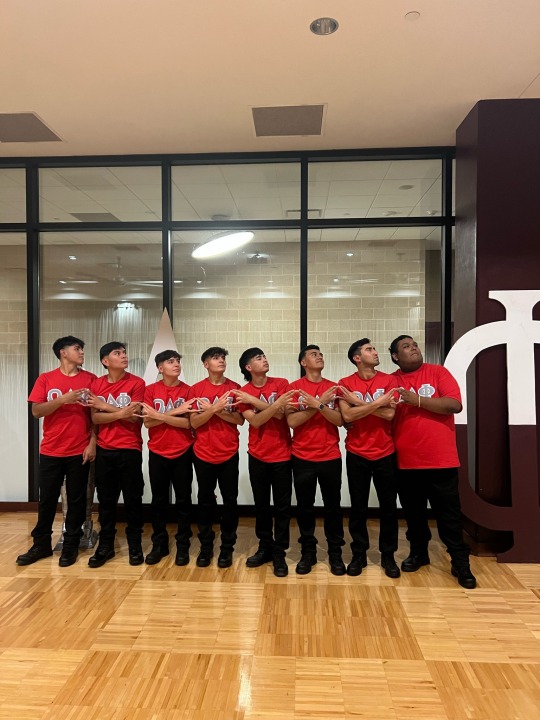
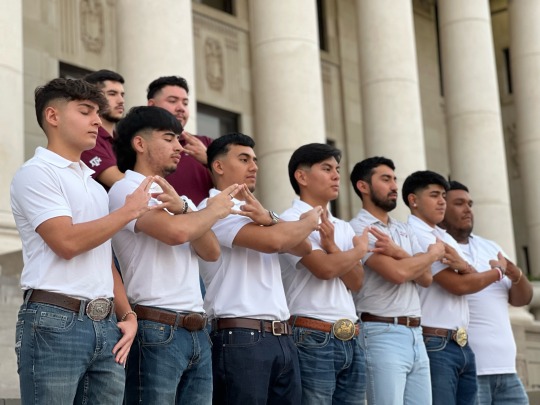
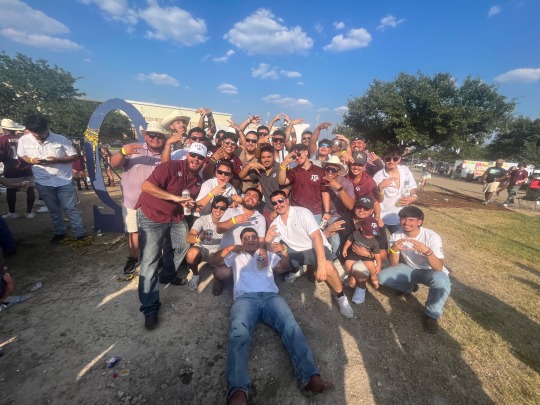
Life as an Omega Delta Phi Member at Texas A&M University.
References
Home - Omega Delta Phi | One Culture, Any Race. (n.d.). Omega Delta Phi Fraternity, Inc. Retrieved May 5, 2024, from https://www.omegadeltaphi.com
Multicultural Greek Council. (2019). Multicultural Greek Council – @TAMU_MGC. Tamu.edu. https://mgc.tamu.edu/
News, N. (2021). The Legacy Of The “Divine Nine” Black Fraternities And Sororities | NBC News NOW. In YouTube. https://www.youtube.com/watch?v=qn_T7zZ60TY
The Historical Legacy of the Divine Nine. (n.d.). National Museum of African American History and Culture. https://nmaahc.si.edu/explore/stories/divine-nine-black-fraternities-sororities
Wounded Warrior Project. (2019). We Serve Injured Post 9/11 American Veterans & Service Members | WWP. Woundedwarriorproject.org. https://www.woundedwarriorproject.org/mission
0 notes
Text
The Impact of Barbering on Latinos
by: Jesse E March 25, 2024

This is my home set up back in Dallas.
BIO
My name is Jesse, and I am a young Latin American barber who was born and raised in Oak Cliff, Dallas, TX. In addition to being a barber, I am also a first-year generation student at Texas A&M University expected to graduate in May, 2024. As a son of two immigrants and projected by many to become a product of my own enviroment, I wanted to show out.
Growing up in a area mostly Latino/a populated, Latin culture became a big part in my life and as I grew up, getting haircuts became one of my favorited things although I also noticed that every other hispanic kid in my block always had a nice haircuts even if they were homemade.
This interest of mine sparked the idea of becoming a barber although I waited untill my Sophmore year in Highschool to join a Barber Academy. I joined Pro Fades Barber Academy which was fiest established a couple blocks up from my house but then moved further into
East Dallas where it now resides is continuously expanding. There I met my teacher and really great friend "FrankyJTheMaster". After completing my hours I was already getting ready to leave for the university although I had a wonderful experience throughout my learning process and learned so much about the barber culture.
Although, I have always if barbering was the same in Latin American culture as it was from back home. This is why I am creating this blog post in order to explore how the barber culture is depicted in Latin America.

History
Surprisingly, it has been tough trying to find a good article or really anything that actually goes really well into depth and detail with the actual history of barbering. It is as if it wasn't any important, or not important enough to even talk about its history.
Although, I did my best to bring something to the table. From what I've learned and can recall, the art of barbering has been dated back centuries. Males have always needed some sort of grooming and that's what barbers were there for, although grooming was not always the barber's only job.
It has been said that barbers back then used to take the task of doing other jobs such as medical procedures, tooth extractions, and other health-related things (Iskhakov, 2023).
Time is of the essence, now everything is different. Nowadays barbers only take care of haircuts, facials, beard work, and trimmings. Although, at least in Texas, whenever you obtain your license to be a barber, you can use that same license to open up nail shops, tattoo shops, botox and that's as far as I know. Don't fault me if I may be wrong doe, the barber industry evolves as society does too. Who are we to say that barbers may never go back to conducting procedures.

youtube
Culture
The barber culture has indeed stayed relevant throughout the years, given the fact that it is a neutral spot where many people can come together and seek grooming services. If it wasn't for barbers, we men would still be looking like cavemen with no haircuts or any sort of groom.
As a barber, I argue that haircuts have now become more of a luxury for those who seek the service. The reason why I say this, is because people are able to come and sit down in a barbershop and interact with many different people, converse, and hang out all while obtaining a service from the barber. All of this just goes and supports the idea of it being a luxury for Men.
Moreover, the beautiful thing about barbering is that it can for sure be adopted by almost any and every culture. Everyone is able to learn this form of art and get to use it to their abilities and express it in whatever manner they want. Some people may look at it as just a practice but others may also look at it as a lifestyle.
In this instance, the Latino culture is one of many cultures that have come along and left their mark on the barbering community. For example, the "slick back" is a very well-known haircut style most commonly portrayed by young Latin Americans, mostly in the early 1900s. In fact, so much so that many Latino barbers have come put with their own line of products which consists of palmade, which is used to make the slick back happen.

This is one of the most known slick back products known within the Hispanic community, created by a Hispanic barber. It has ever sine grown and became part of the barber community as it sits within almost every barbers tools kit.
Another example, in today's Hispanic culture there is another haircut that has surfaced and created a big platform for young Latinos and has even been used to identify that specific group of people who have it, It is known as the "cuh haircut" which is basically similar to a "bowl cut". It is said that this person who have the haircut like trucks, wearing boots and saying "cuh".

This is an example picture of what you would call a "cuh".
Believe it or not, such things as these haircuts slowly grow to expand all over the community. I first remember seeing these haircuts here in Texas, although whenever visiting Mexico, I noticed that also many young Mexican kids had the "cut" haircut. Which I believe that goes to show how influencing the culture can be, going as far as influencing people from other countries.
The Impact
My main point or argument in this blog is that the whole concept of having barbershops around or even becoming a barber can have a very positive and significant impact on young LatinX teenagers and any other teen in general.
This impact ranges way beyond just giving a fresh haircut, many barbers I know, including myself, have proudly served kids in our community with guidance, support and even resources at times in hopes of aiding the development of these kids in our community, they are our future (artistic nails & beauty academy, 2015).
The reason why I believe that barbershops and barber are capable of doing such things is simply because of their line of work. A barber shop is a common ground where anyone and everyone is welcome to go, which alone promotes the value of a community connection. As a barber, you get all kinds of people who sit down in your chair. For example, I've cut people who are teachers, principles, cops, blue-collar workers, etc.
Therefore, by being constantly in touch with people like this you build relationships with them and the whole barbershop becomes in touch with so much knowledge that they can pass it down to the young ones and give back to the community. I would express this part as networking opportunities because you are able to help expands these young kids' networks at such a young age that it will eventually someday help them out whenever they are trying to figure out what they want to do with their life.
Next, cultural representation is another way in which Barberism can positively impact teenagers. Many barbershops in Latino communities are owned by individuals with the same background and culture. Therefore, the success of the owner or even barber can serve as a motive and inspiration for the young individuals whom are constantly going to the barbershop. This can spark up and initiate what could possibly become an entrepreneurship career for this kids. For example, in an article written by Pirnia (2023), she mentions how a young adult who kept running into trouble, was inspired by his own barbershop and decided to to barber school and obtain his own barber license. This again, goes out to show how greatly impactful such a thing can be.
One more way in which Barberim can be very supportive is simply by being a safe space. Creating a safe place for people allows them to freely and carelessly express themselves, all while being judge-free. This also goes back and ties in with the fact that people are able to create great relationships in barbershops that offer safe spaces because the clients get to discuss personal experiences or even cultural experiences. I can personally back this up with my very own experience as a barber. I have had many clients come to get a haircut service with me after a long stressful day and all they want to do is be heard. Some of them may sometimes share their problems with me and ask me for my input or advice and some of them may sometimes just want to share some old fun stories about their life with me. No matter what they would like to share with me, I always make sure to give them all my attention that way they feel like they are being appreciated and heard. This can lead to creating stronger bonds with our clients and making them want to come more often.
Tips & Advice for Upcoming Latino Barbers
One of my favorite parts of being a barber is being able to help out people from my background or culture who are trying to become or pursue the career of a barber because I personally can relate to the same struggles and obstacles they may also be facing.
Therefore, these are some tips and or advice I have for those young Latinos who are trying to better their life and become successful by taking the barber route:
Patience is very important. I believe that patience is needed for every form of artwork that anyone is trying to learn. Not everything will come so quickly, you will have to go through some trial and error and make a lot of mistakes before you start to see progress.
Believe in yourself. Along the way, you will find that not everyone is on your side, although sometimes you have to believe in yourself to keep you pushing through.
Not all days will be your favorite days. There are many times and points within your career where you are going to go through a time when business is not going as well but that's just part of the game. You will able to make up for it when times do change and become better.
Be proud of who you are and where you come from. As a barber, it is important to stand out and be proud of who you are as a person. Your characteristics we'll have a profound impact on your clientele.
Be ambitious. The whole process is like a roller coaster, you will indeed have ups and downs but how it makes you will all be up to you. There is a difference between waiting to be a barber and actually doing what it takes to be a barber. You will need to take initiative and always do what is best for your career.
Being caring and outgoing is also vital in order to become a successful barber. You need to be able to care for your customers because just like stated earlier on, you will build relationships with them.
youtube
This is the first and ONLY haircut video I ever did in the spend of my 6-year barber career. Although I genuinely enjoyed the process of creating this video, it really was a bit stressful. I haven't tried making another video since although it might be a great idea now, in order to show how far I have progressed.

References
artistic nails & beauty academy. (2015, June 1). Barbershops Building a Community. Artistic Nails & Beauty Academy. https://www.artistic.edu/barbershops-building-a-community/
Iskhakov, M. (2023, April 28). Inside the World of Barber Culture: The History, Style, and Future of the Barber Shop Experience. Mankind Barbers NYC. https://www.mankindbarbersnyc.com/blog/miscellaneous/inside-the-world-of-barber-culture-the-history-style-and-future-of-the-barber-shop-experience
Pirnia, G. (2023, February 10). More than just a haircut: Local barber seeks to become a community resource. LINK nky. https://linknky.com/business/2023/02/10/more-than-just-a-haircut-local-barber-seeks-to-become-community-resource/
Ted-Ed. (2023, November 16). The gory history of barber surgeons - Stephanie Honchell Smith. Youtube. https://youtu.be/fGPPy__YnrI?si=o6U2iPJ5JE_YeSQF
1 note
·
View note